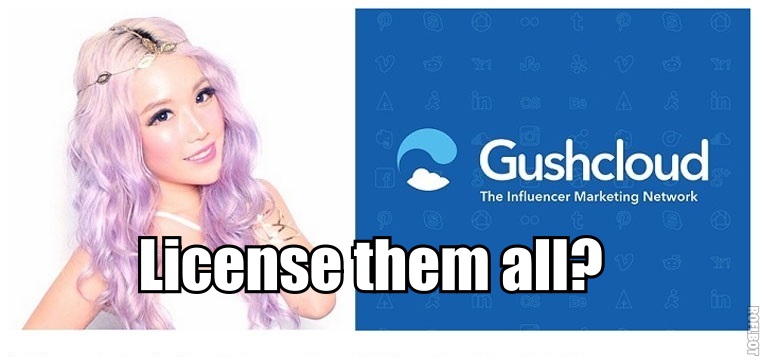It was alleged that social media agency Gushcloud briefed and incentivised its influencers to conduct a smear campaign against Singtel's competitors M1 and StarHub.
Singtel had already said that it did not direct Gushcloud to do so and it was not Singtel's practice to "run negative campaigns against any individual or organisation".
M1 and StarHub has turned to the Infocomm Development Authority (IDA) and asked the regulator to look into the matter.
Will the authorities do something?
IDA in turn said that it encouraged its licensees to "focus on promoting the availability, price and quality of their own services or equipment, and refrain from negative campaigns against their competitors", and that they should "abide by the Singapore Code of Advertising Practice when conducting marketing activities".
It appears that IDA has put the onus on telcos to abide by the Singapore Code of Advertising Practice (SCAP).
Does the SCAP have the 'bite' to rein in errant social media agencies/bloggers?
As the name of SCAP suggests, it is a code and a body that ensures that the code is adhered to. The Advertising Standards Authority of Singapore (ASAS) does not have any regulatory oversight of agencies such as Gushcloud or individual bloggers.
The ASAS can advise the Consumer Association of Singapore (CASE) when the code is broken, and it is up to the consumer watchdog whether it wants to take the errant advertisers to task.
However, in a TODAY report on Mar.17, CASE executive director Seah Seng Choon said: “As far as this matter is concerned, we are not certain whether the information put out by Gushcloud is an advertisement, because it is not clear whether Singtel authorised all the content released by the bloggers contacted by Gushcloud.”
In other words, the SCAP and CASE may not do anything yet since they are unsure whether the errant behaviour was initiated by Gushcloud or Singtel.

So who has the reins then?
When you talk about media on the Internet, the first regulatory body that comes to mind is the Media Development Authority (MDA).
Under the Broadcasting Act, MDA hands out licences to websites that cover the news and socio-political content in Singapore. This is to ensure that these websites are not taking foreign funding, which in turn may allow foreign forces to influence Singapore politics.
There are no licences for social media agencies or bloggers to ensure that they do not engage in unethical practices like smear campaigns.
Licencing as the logical conclusion
So the question now is, should MDA start licensing social media agencies, like Gushcloud, and bloggers, like Xiaxue, to ensure that there can be real repercussions should they contravene things like the Internet Code of Practice or the SCAP?
If MDA was mulling before whether to roll out licences for social media content producers like YouTubers and bloggers, this whole debacle could be the push they need.
If people are pushing for Gushcloud to be taken to task by the authorities, MDA's only move would be to license Gushcloud to keep them on their toes.

Self-regulation is better than licencing
I have written at-length on why licencing YouTubers and bloggers would stifle the industry before.
In essence, terms and conditions found in licences can be onerous and vague; and in a landscape where YouTubers and bloggers are generally much too young to understand legalese, licencing may be too complex for them to even care when they hit the 'Publish' or 'Share' button. There are already other laws in place to take care that racier types of content do not see the light of day.
The industry, I would argue, is in a nascent stage and the people in it - bloggers, YouTubers, Facebook page owners [think troll sites like Sgag and SMRT Ltd (Feedback)] - are still exploring the boundaries of what can or cannot be done to deliver value to their audiences.
And when some boundaries are crossed, word gets around and sagas/exposés will result. The Gushcloud debacle has been exposed online in a very public fashion and reputations have been hit. I doubt we would see a repeat of a smearing campaign any time soon.
Whilst bad news of yesteryear can be swept away and given to the karung guni man, this entire saga will live on forever on the Internet to serve as a reminder of what can or cannot be done.
Hence, who needs licencing if the Internet never forgets?
If you like what you read, follow us on Facebook, Instagram, Twitter and Telegram to get the latest updates.
